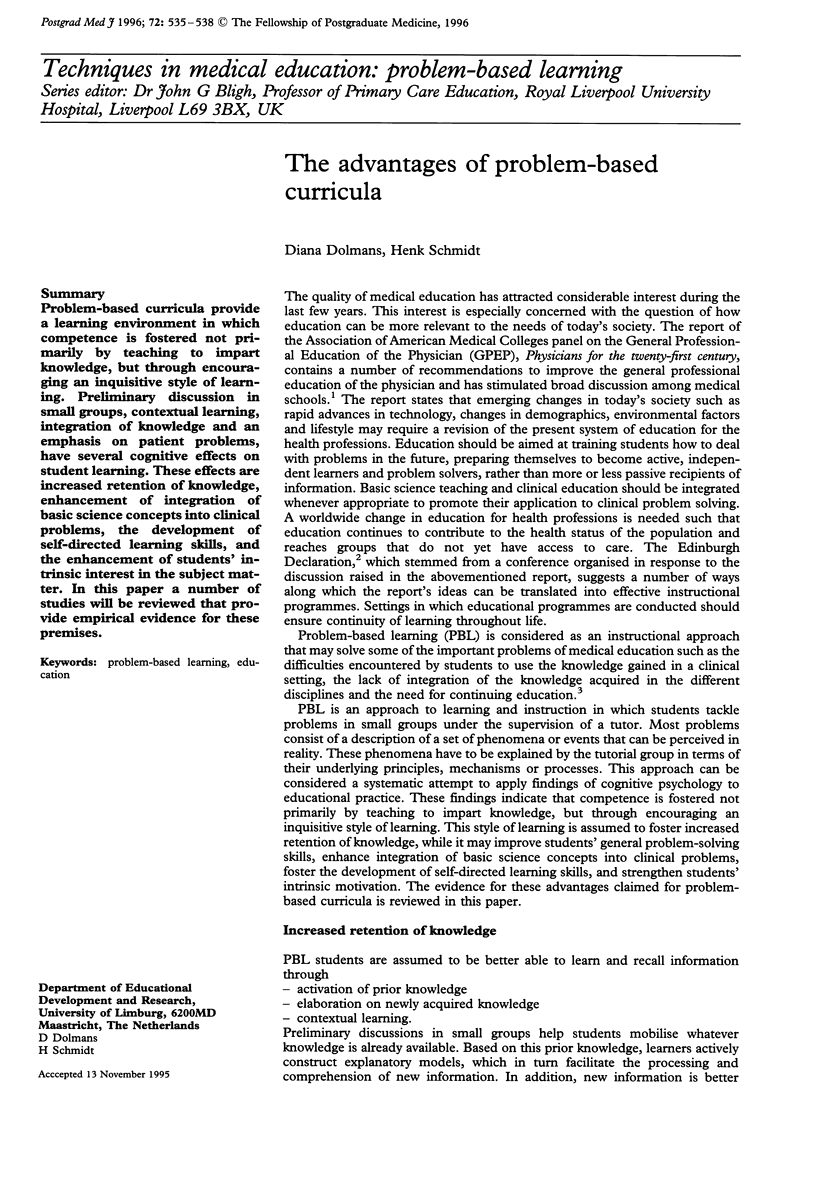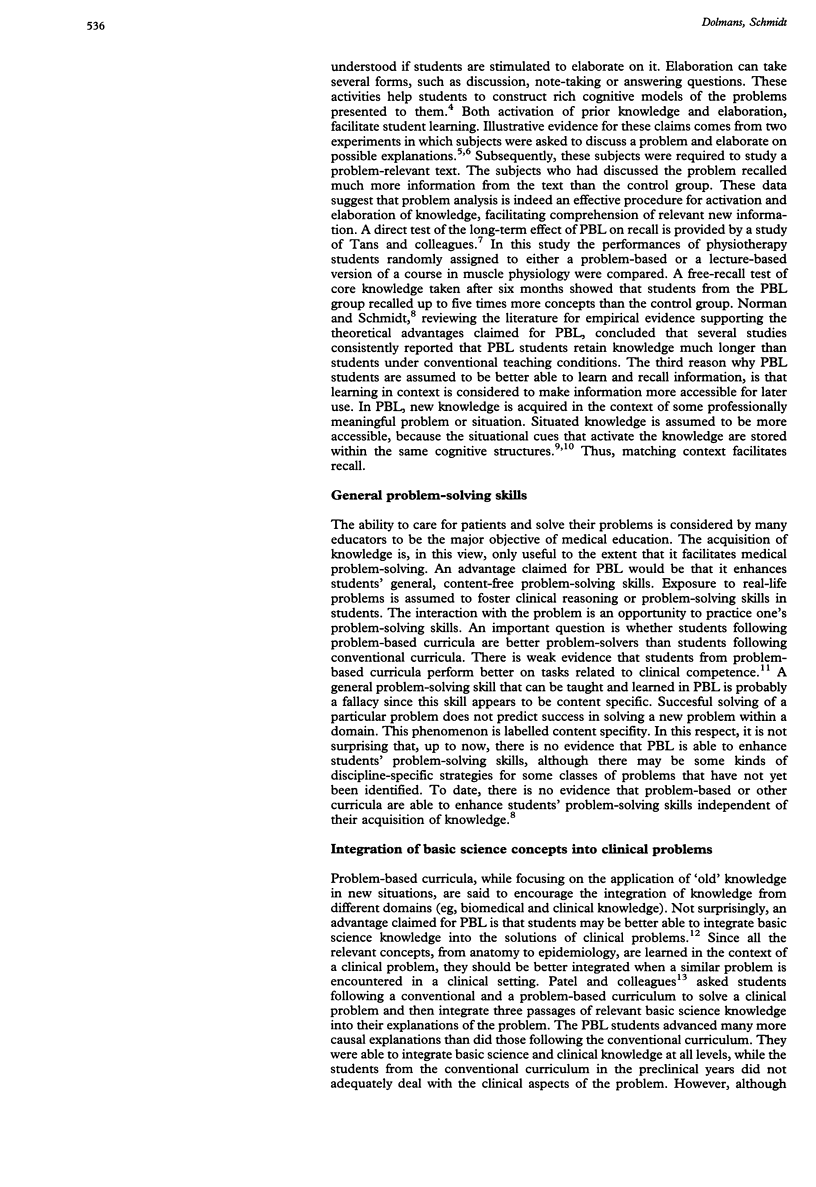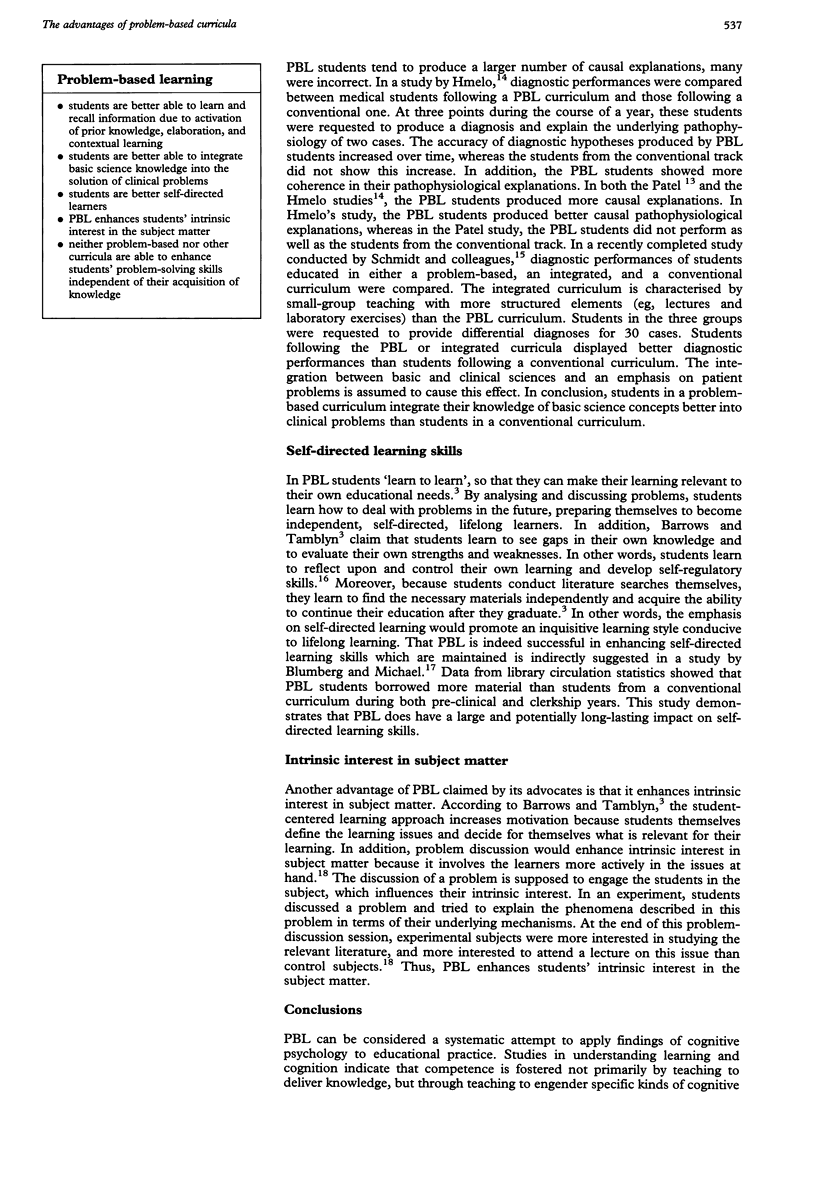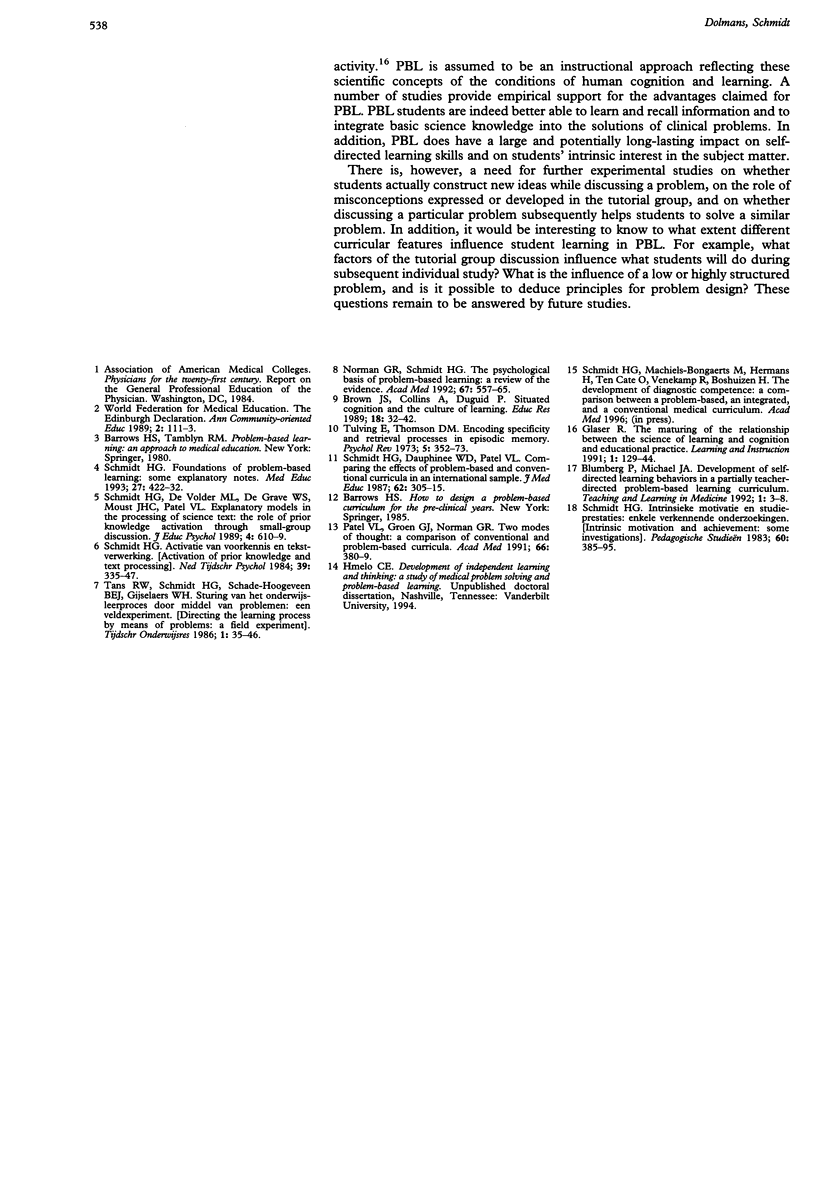Abstract
Problem-based curricula provide a learning environment in which competence is fostered not primarily by teaching to impart knowledge, but through encouraging an inquisitive style of learning. Preliminary discussion in small groups, contextual learning, integration of knowledge and an emphasis on patient problems, have several cognitive effects on student learning. These effects are increased retention of knowledge, enhancement of integration of basic science concepts into clinical problems, the development of self-directed learning skills, and the enhancement of students' intrinsic interest in the subject matter. In this paper a number of studies will be reviewed that provide empirical evidence for these premises.
Full text
PDF



Selected References
These references are in PubMed. This may not be the complete list of references from this article.
- Norman G. R., Schmidt H. G. The psychological basis of problem-based learning: a review of the evidence. Acad Med. 1992 Sep;67(9):557–565. doi: 10.1097/00001888-199209000-00002. [DOI] [PubMed] [Google Scholar]
- Patel V. L., Groen G. J., Norman G. R. Effects of conventional and problem-based medical curricula on problem solving. Acad Med. 1991 Jul;66(7):380–389. doi: 10.1097/00001888-199107000-00002. [DOI] [PubMed] [Google Scholar]
- Schmidt H. G., Dauphinee W. D., Patel V. L. Comparing the effects of problem-based and conventional curricula in an international sample. J Med Educ. 1987 Apr;62(4):305–315. doi: 10.1097/00001888-198704000-00002. [DOI] [PubMed] [Google Scholar]
- Schmidt H. G. Foundations of problem-based learning: some explanatory notes. Med Educ. 1993 Sep;27(5):422–432. doi: 10.1111/j.1365-2923.1993.tb00296.x. [DOI] [PubMed] [Google Scholar]


